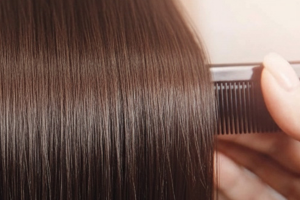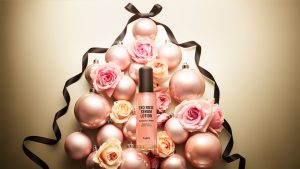
In the global skincare industry, the label ‘Made in Japan’ is a mark of excellence, standing for quality, innovation, and unparalleled effectiveness. More than just a passing trend, Japanese skincare is revolutionizing the beauty market, offering brands a competitive edge. Here’s why incorporating ‘Made in Japan’ skincare into your brand strategy can be transformative.
1. Uncompromising Quality and Reliability
Japanese skincare products are renowned for their meticulous craftsmanship and stringent quality control measures. The ‘Made in Japan’ seal is synonymous with reliability and longevity, strengthening consumer trust and brand credibility.
A prime example is QuSome penetration technology, pioneered by b.glen. This advanced delivery system allows active ingredients to penetrate deeper into the skin, enhancing product efficacy. Notably, QuSome technology is so specialized that it can only be manufactured in select facilities worldwide, with Japan’s production facilities consistently delivering the highest quality output.
2. Cutting-Edge Skincare Technology
Japan is a leader in skincare innovation, seamlessly blending modern technology with time-honored beauty practices. High-tech beauty devices and AI-powered skincare solutions continue to push industry boundaries.
For instance, the AI Mist, developed by the University of Tokyo in collaboration with Lady Bio, is a water-based multipurpose skincare spray designed to address a variety of skin concerns. Integrating such pioneering advancements into your product line can give your brand a distinct competitive advantage.
3. Advanced Formulations with Scientifically Proven Ingredients
Japanese skincare excels at combining traditional wisdom with cutting-edge science. Leading brands like b.glen utilize proprietary QuSome technology to develop the QuSome Complex, a next-generation formulation that encapsulates and synergizes potent ingredients for maximum absorption and effectiveness.
This approach enables brands to introduce scientifically backed, high-performance ingredients that align with evolving consumer needs. By incorporating advanced complexes into product development, brands can stay ahead of industry trends and offer next-level skincare solutions.
4. Minimalist Yet Highly Effective Skincare
Japanese skincare follows a ‘less is more’ philosophy, emphasizing simple yet highly effective multi-functional products. This streamlined approach appeals to modern consumers seeking efficient skincare solutions.
Iconic examples include Hada Labo Gokujyun Hyaluronic Acid Lotion and Kikumasamune Sake Skin Lotion, both formulated to deliver deep hydration and nourishment with minimal effort. This consumer-friendly approach enhances product usability and fosters long-term customer loyalty.
5. Built-In Consumer Trust and Regulatory Assurance
The ‘Made in Japan’ label conveys stringent regulatory compliance and high safety standards, fostering strong consumer confidence. With rigorous quality control measures in place, Japanese skincare products enjoy a reputation for safety and efficacy.
This trust translates into stronger brand advocacy, improved customer retention, and higher perceived value in competitive global markets.
6. Expanding Global Market Potential
The demand for Japanese skincare is surging, contributing significantly to the industry’s overall growth. By 2025, Japan’s skincare market is projected to generate $23.67 billion in revenue, with a 2.93% annual growth rate (CAGR 2025-2029).
Aligning your brand with ‘Made in Japan’ skincare allows you to tap into this expanding market and cater to an increasingly sophisticated international consumer base.
7. Enhanced Brand Image and Premium Pricing Strategy
Japanese skincare’s association with superior quality enables brands to position themselves as premium players in the market. Consumers are willing to invest in high-end products that embody precision, efficacy, and innovation.
Luxury brands like SK-II and Tatcha have successfully leveraged their Japanese origins to command premium pricing and establish a prestigious brand image. By following a similar strategy, brands can elevate their market positioning and profitability.
8. Access to Expert Workforce and Cutting-Edge Manufacturing
Partnering with Japanese manufacturers provides brands access to an elite workforce known for exceptional skill, discipline, and precision. Additionally, working with high-tech Japanese suppliers can facilitate research-driven product development and unlock opportunities for groundbreaking skincare innovations.
9. Unique Marketing Opportunities with ‘Made in Japan’ Labeling
The ‘Made in Japan’ designation presents powerful marketing opportunities. Brands can:
- Participate in Japan-exclusive beauty expos and trade shows.
- Collaborate with Japanese skincare influencers and KOLs.
Utilizing these marketing avenues can significantly enhance brand awareness and establish credibility in both domestic and international markets.
Embracing ‘Made in Japan’ skincare is more than just a strategic move—it’s a gateway to premium branding, increased consumer trust, and long-term business growth. By leveraging the expertise of trusted partners like b.glen, your brand can offer high-performance skincare products that stand out in a saturated market.
Whether you’re an emerging brand or an established company looking to expand, aligning with Japan’s skincare excellence can elevate your brand’s global presence and set new standards for quality and innovation.








